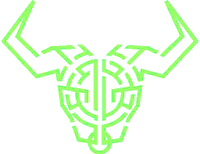News, support and resources.
We're here to answer questions and chat.
Open in TelegramStaking is a mechanism to promote decentralized network stability. If a user elects to stake(delegate) Cardano (ADA tokens), to a server, they earn a return on that choice, while also retaining full control over their currency. This is a flexible mechanism, and any participant can decide to remove (undelegate) ADA at any time. The Staking mechanism helps the Cardano network by encouraging stability to the currency, and by keeping the control over the network distributed between all holders of the currency.
Like a bank, when a staking pool operates, it processes transactions on the network and contributes to the network's structure and speed. Transaction fees derive from work done by the server, and a portion of those returns are distributed to stakers on the server.
Furthermore, the security of the network is increased by ensuring that many independent Stakers are able to have an influence on the governance of the network, and by making it extremely difficult for any hypothetical attacker to gain control without investing enormous sums of money.
Cardano staking operates on a cyclical basis, with each processing period, or block, contributed to the blockchain coming from a different, randomly selected stake pool server. Rewards for those transactions are paid out every network epoch (a period of 5 days).
The Cardano foundation has provided a calculator to assist stakers in working out what their returns will be. Although the block assignment to each server is decided randomly, there are mechanisms in the blockchain software to determine that each staker will balance out to about a 4.5 to 5.5 percent return per year. This software is entirely open-source and is very thoroughly audited by the community to ensure fairness.
The process is pretty simple. Look out on the channel for an announcement of our step-by-step explanation of this process, coming shortly, but here is the process in a nutshell:
In order to keep your Cardano ADA safe, you must move it to your own secure wallet software, which will have keys and spending passwords which only you know.
It may be tempting to purchase coins on an exchange and just leave them in your exchange account, but doing so is not wise. The old crypto phrase "Not your key, not your coins" applies here, because coins on an account in an exchange are just like cash in the bank - they're a number on a spreadsheet. Coins in a private wallet are safer, and most importantly, they are provably yours, safe from Exchange problems like hacks, errors, or even bankruptcy.
Wallets on a Blockchain network hold cryptographic keys that are able to activate and control an individual currency account. There are two good options provided by the Cardano Foundation, each with their own specific strengths. In the case of Cardano, when a wallet is set up, the user receives a set of key words which can unlock their account. These keys must be kept secret, and they must be kept safe. It cannot be over-stated that the passphrase to a wallet must be copied and kept in a secure location. Multiple safe copies are recommended.
Daedalus is a desktop wallet software which runs a full node on the Cardano blockchain. Available for the Mac, Windows and Linux operating systems, Daedalus maintains a record of the entire history of the Cardano blockchain. When it is first installed, it validates all blocks and transactions for fully autonomous operation.
In addition to holding currency, Daedalus allows a user to delegate their coins to a server (CDNC), review their transaction history, and participate in the Cardano governance system, opening a path for users to cast votes on funding proposals for new development projects, among other things.

Yoroi is a simpler, lighter wallet for Cardano ADA, which runs as a Chrome or Firefox extension or mobile app. Rather than running a full Cardano network node, Yoroi connects to a Cardano node hosted by Emurgo, which is an independent development arm of the Cardano organization. Yoroi sets up instantly and operates with a minimum use of system resources. It runs on Mac, Windows, Linux, iOS and Android.

For further information on Wallets, please see: More Info
Tell us if you have ideas for this section…